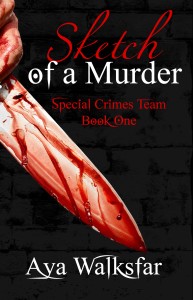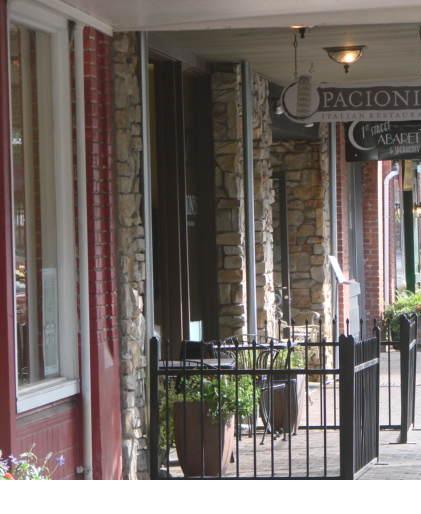MEET OFFICER DRISCOLL MULDER, SPECIAL CRIMES TEAM
Interviewer: I am so glad you could make this #interview, Officer Mulder.
Officer Driscoll Mulder: Yeah, well, the Lieutenant said we should play nice with you. (Folds his arms over his chest)
Interviewer: Well… (interviewer gives a small frown) Does that mean you would prefer not to be here?
Officer Driscoll Mulder: (Gives a big shrug) It’s okay. So what do you want to ask me?
Interviewer: What do you want me to ask you?
Officer Driscoll Mulder: (Purses lips) You’d make a good cop. Answer a question with a question. (Gives another shrug) It’s your show.
Interviewer: Okay. Why did you join the #Special #Crimes #Team?
Officer Driscoll Mulder: (Brows shoot up to his hairline) You go right to the meat, huh? All right. ( He sits up straight and locks his eyes on the interviewer) I joined them because I’m #gay. (He leans against the back of the chair, his eyes never leaving the interviewer’s face.)
(Interviewer raises a brow) Why would being #gay be the deciding factor on whether you joined the team, or not?
Officer Driscoll Mulder: (Purses lips and makes a sucking sound between teeth as he watches interviewer) There are still neanderthals who believe that being a cop means being a ‘man’s man’ (He makes air quote marks with his fingers) and to them being gay makes me less than a man. Oh, I could’ve hid in the closet, kept my mouth shut and blended, but that isn’t me. I march in the Pride Parade, I speak up in the locker room when someone thinks some of their heterosexist jokes are oh so funny. Doesn’t make me popular.
(Interviewer gives a small head shake) Being on the Special Crimes Team is better?
Officer Driscoll Mulder: (He slouches in his chair, stretches his legs out in front of him) Don’t know yet. Just got there. Can’t be any worse than where I was.
Interviewer: If being a #cop is so difficult, why do it? Why not go into some other line of work?
Officer Driscoll Mulder: (A weariness settles on his young face) Being a cop is difficult, and dangerous. Between the bigots on the street who would love to shoot a gay cop for being gay, and the bigots in the force who wouldn’t mind turning a blind eye to that kind of shooting, being a gay cop is even more dangerous, but if not me, then who? If I don’t push forward, there will be no trail for any other LGBT person to follow.
And those queer kids out there, the ones who hate cops, well maybe they can relate a little better to a queer cop. At least, it lets them know there is someone who might understand. Do you have any idea how many of the street #kids are LGBT–lesbian, gay, bisexual and transgender? The last stat I read said that 50 percent of the street kids are there because they are #LGBT. Many of them are thrown out of their houses, or they run from parental violence. That’s one of the reasons why I’m an out, gay cop.
If that means I transfer into what other #cops see as the Siberia of law enforcement…. (He gives a one-shouldered shrug) then that’s where I’ll go. No bigot is going to stop me from representing my people—LGBT people—and giving a voice to them from within law enforcement. Besides, (he gives a grim smile) if I keep shining a light, maybe others will see the kinks in the system, and maybe there will be a chance to effect a change.
Interviewer: That is quite a burden, but I admire your courage. If we don’t forge a trail and create changes, then who will?
My wife and I married as soon as it became legal for lesbians to marry in Washington State. Not only does it protect our right to be with our loved one in a medical situation, and to make those important health calls, but the inheritance law won’t penalize us as it does when two people who build something together, but can’t marry are penalized. And that is just two of the rights that heterosexual couples have enjoyed all along, but were denied to lesbian couples, to all LGBT couples.
(Interviewer smiles) One of the things I appreciate about being able to marry is letting other people realize: my choice of who I love does not take anything away from you, and it brings to the world nearly 25 years of two people living a life of commitment and love. In this world, especially today, we need all the honest, healthy love we can get.
Well, Officer Mulder, I truly do thank you for coming. For those who would like to learn more about who LGBT people really are, I suggest you visit sites such as Have a Gay Day (FB) http://www.facebook.com/MyGayDay .
(Remember: that no single site, or any number of sites, can claim to speak for “all LGBT people” just as no site, or any number of sites, can claim to speak for “all heterosexual people”.
STAY TUNED TO THIS BLOG ( http://www.ayawalksfar.com ) for all the latest and greatest news!
 AVAILABLE ON AMAZON: http://www.amazon.com/Sketch-Murder-Special-Crimes-Team-ebook/dp/B00KU6AIPQ
AVAILABLE ON AMAZON: http://www.amazon.com/Sketch-Murder-Special-Crimes-Team-ebook/dp/B00KU6AIPQ
Visit author, Aya Walksfar, on Facebook: http://www.facebook.com/ayawalksfar
Visit Aya at http://www.pinterest.com/ayawalksfar to see photos of places important to the members of the Special Crimes Team.



